![]() — Home — Business News
— Home — Business News
Weekly Business News from Myanmar
-
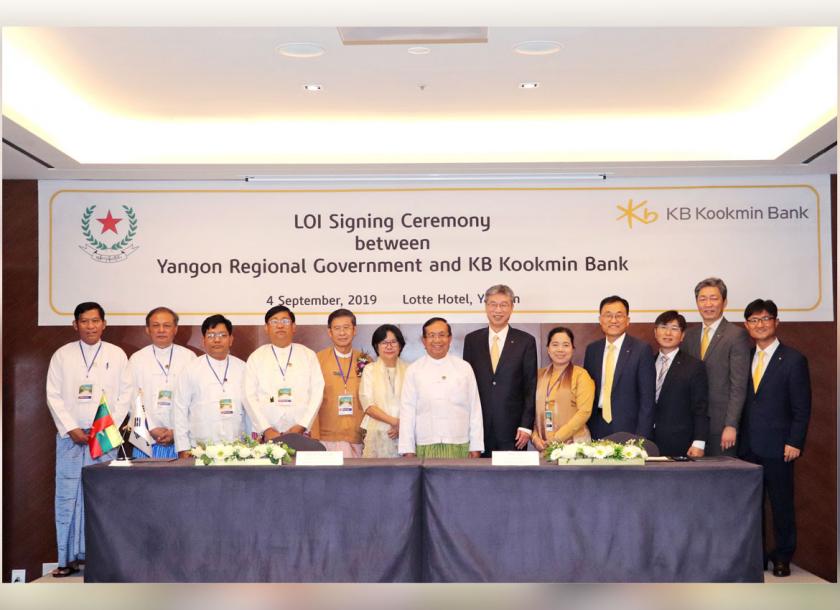
KB Kookmin Bank (KB) is preparing to acquire a corporate license permitting it to sell advanced financial products in Myanmar
KB Kookmin Bank (KB), South Korea’s largest bank, is preparing to acquire a corporate license permitting it to sell advanced financial products in Myanmar. The bank plans to introduce new financial instruments and services in retail banking, such as housing and SME finance, corporate finance, including trade finance and infrastructure finance, digital banking and personal banking services. KB is Korea’s No.1 housing finance bank. Kim Chang-woo, head of KB Yangon office, said KB will leverage on its cooperative ties with the Ministry of Construction and share its know-how in housing financial products and services. -
Myanmar needs deeper reforms to achieve strong inclusive economic growth and strengthen financial management
YANGON—The World Bank’s latest research says Myanmar needs deeper reforms to achieve strong and continuing economic growth, including steps to strengthen financial management, promote peace and enhance environmental sustainability. The new World Bank report “Myanmar: Economic Transition Amid Conflict; A Systematic Country Diagnostic,” says the government needs to implement these deeper reforms to ensure long-lasting and inclusive growth across the country. According to the report, Myanmar’s existing reforms have generated immediate gains by reducing fiscal deficits and supporting a more independent central bank to lower inflation and unify the exchange rate. They have also opened up telecommunications and manufacturing sectors to foreign investors as a means to increase employment rates. -
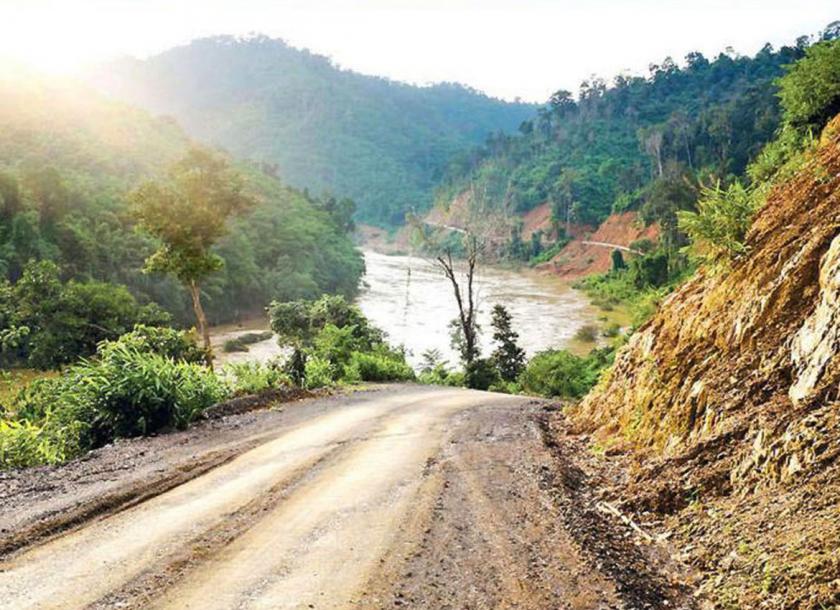
Chinese firm expressed its interest to invest in Dawei Special Economic Zone (SEZ) in Tanintharyi Region
A state-owned Chinese firm has expressed interest to invest in the planned Dawei Special Economic Zone (SEZ) in Tanintharyi Region, U Myint San, vice chair of Dawei SEZ Management Committee, told The Myanmar Times. The Myanmar government has yet to respond to the Chinese, given that talks to develop the SEZ with Italian-Thai Development Company Ltd (ITD) as well as the Thai and Japanese governments are at advanced stages. However, analysts aren’t ruling out the possibility. “Dawei SEZ has taken a long time to take shape and isn’t going as planned. As we don’t have the funds to implement it, if the current investors cannot develop the project effectively, then Chinese companies are our only options,” said U Zaw Win Pe, a local analyst and former economic adviser to parliament. -

Thailand-Myanmar border trade climbs to $1.3 bln in current fiscal
The value of border trade between Myanmar and neighbouring Thailand was registered at US$1.314 billion as of 7 February in the current financial year compared with $1.28 billion in the corresponding period of the previous FY, according to data released by the Ministry of Commerce. Between 1 October, 2019 and 7 February, 2020, Myanmar’s exports to Thailand were pegged at $906.16 million, while imports were estimated at $408.229 million. -

Chinese investors slower to discuss investments in Myanmar amid COVID-19
The number of Chinese investors coming to Myanmar to discuss investment opportunities has declined amidst the coronavirus outbreak (COVID-19), said U Thant Sin Lwin, Director-General of the Directorate of Investment and Company Administration (DICA). “The country expected to attract more investments from China post the Chinese New Year. But, COVID-19 has affected investment,” he said. “Fewer Chinese investors have discussed investments in Myanmar. Moreover, the arrival of tourists has also dropped,” said U Thant Sin Lwin. -
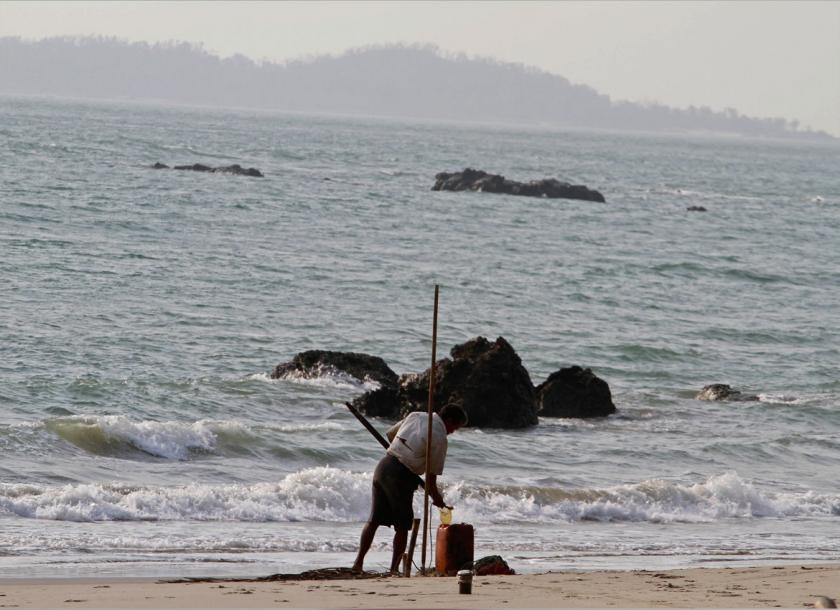
An industrial zone project within the Kyaukphyu Special Economic Zone (SEZ) in Rakhine State will be developed for US$30 billion
An industrial zone project within the Kyaukphyu Special Economic Zone (SEZ) in Rakhine State will be developed for US$30 billion, deputy commerce minister U Aung Htoo told Pyithu Hluttaw this week. CITIC Consortium from China owns 51 percent of the industrial zone while the Myanmar government owns 49pc, he said. The industrial zone will be developed on 2400 acres of land and a high-end housing project will also be constructed across 1235 acres. The Kyaukphyu SEZ, which is expected to consist of the industrial zone and a deep sea port, will be developed across 4300 acres of land in total. -

Foreign Direct investments flowed into power sector tops USD $ 1 billion in the past four months of the current fiscal year
Foreign direct investment of over US$1.026 billion has flowed from six enterprises into the power sector in the past four months of the current fiscal year, according to statistics provided by the Directorate of Investment and Company Administration (DICA). The total investment in power is higher than in any other sector. During the October-January period, FDI of $2.089 billion, including an expansion of capital, has flowed into the country. The Myanmar Investment Commission (MIC) and the investment committees of states and regions have allowed 106 enterprises to invest in the country. In the current fiscal year, the manufacturing sector has absorbed FDI of $253.25 million. The livestock and fisheries sector has drawn foreign investments of $15.53 million, and over $145.4 million has been pumped into the transport and communications sector, while the hotels and tourism sector has pulled in investments of $27.954 million. -
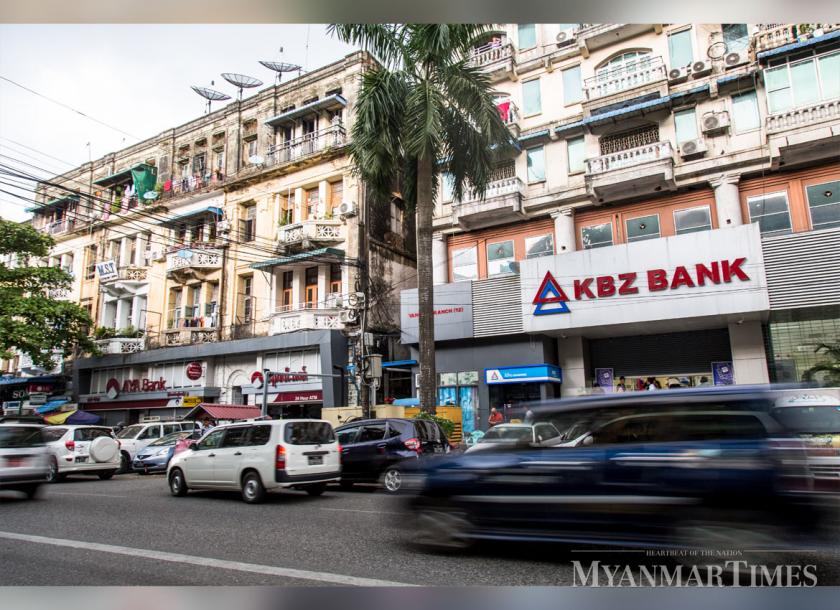
Myanmar will start the process of disbursing loans with credit assessments from Myanmar Credit Bureau to commence operations in April
Myanmar will start the process of disbursing loans supported with credit assessments from the Myanmar Credit Bureau by April, Daw Than Than Swe, director general of the Financial Institutions Supervision Department under the Central Bank of Myanmar, said in Yangon on February 18. “The credit bureau will commence operations in late April," she said. However, it will still take up to one year to collect sufficient and meaningful credit data on local businesses to be provided to the banks, said U Zaw Lin Aung, chair of Myanmar Credit Bureau. The credit bureau is the first in Myanmar. Data from the credit bureau will enable banks to make better loan decisions and strengthen risk management. Meanwhile, individuals or businesses with good credit management will be able to receive loans more quickly, he said. -

Investments from Hong Kong in Myanmar reached USD $ 1.15 billion in the current fiscal year
Hong Kong has emerged as the largest investor in Myanmar in the current fiscal with 28 Hong Kong-based firms pumping in US$1.15 billion in real estate development, electricity, and garment businesses as of January, according to the Directorate of Investment and Company Administration (DICA). Hong Kong topped the list of investors in October, followed by Singapore, which invested an estimated $513.46 million in five projects. Investments also flowed into the country from France, Germany, India, Japan, Malaysia, the Republic of Korea, Thailand, the UK, Viet Nam, Samoa, and China (Taipei). Foreign direct investment (FDI) of $2.08 billion flowed into Myanmar during the October-January period, including expansion of capital by existing enterprises, according to DICA. The DICA intends to reach its FDI target of $5.8 billion in the 2019-2020 financial year. “South east Asian countries see investment potential in Myanmar on account of cheap labour and business opportunities. Thus, larger entities are likely to enter the country,” said U Thant Sin Lwin, director-general of the DICA. -
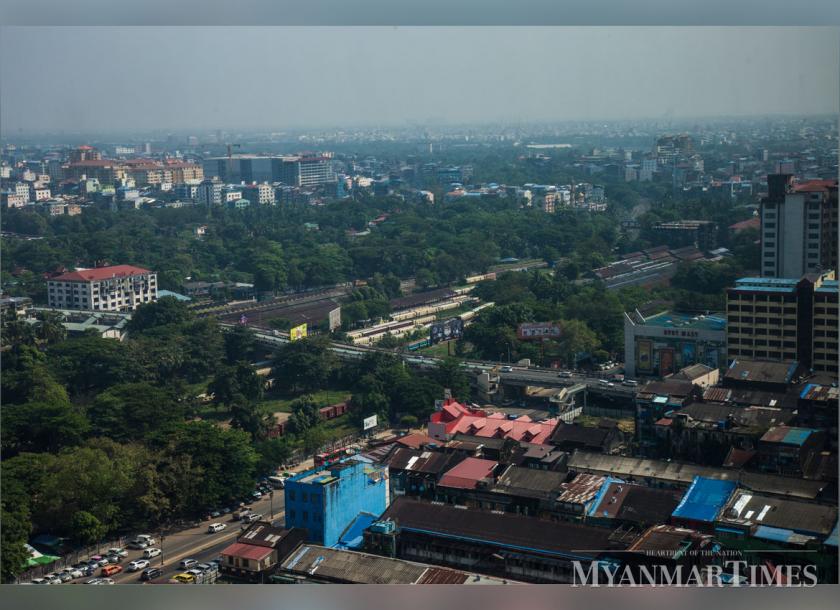
Only 5 % of land purchase applications in Yangon are complete and valid
Only 600 out of the 12,000 applications to submit a Request for Proposal for land sold by the Yangon regional government are complete and valid, a Yangon city official said. “Most of the applications are not complete or fail to meet requirements,” said U Maung Maung Oo, a former government staff. The Yangon government has put several plots of land up for sale in Hlaing Thar Yar, Shwe Pyi Thar and Dagon townships as well in Myaung Dagar Industrial Zone in Hmawbi township. The plots of land will be sold at a price fixed by a land price valuation board in Yangon. Land buyers must start a business on the land within six months of purchase. The land cannot be sold in the first three years.
Business News
Copyright © 2014 Business Information Center All Rights Reserved.







